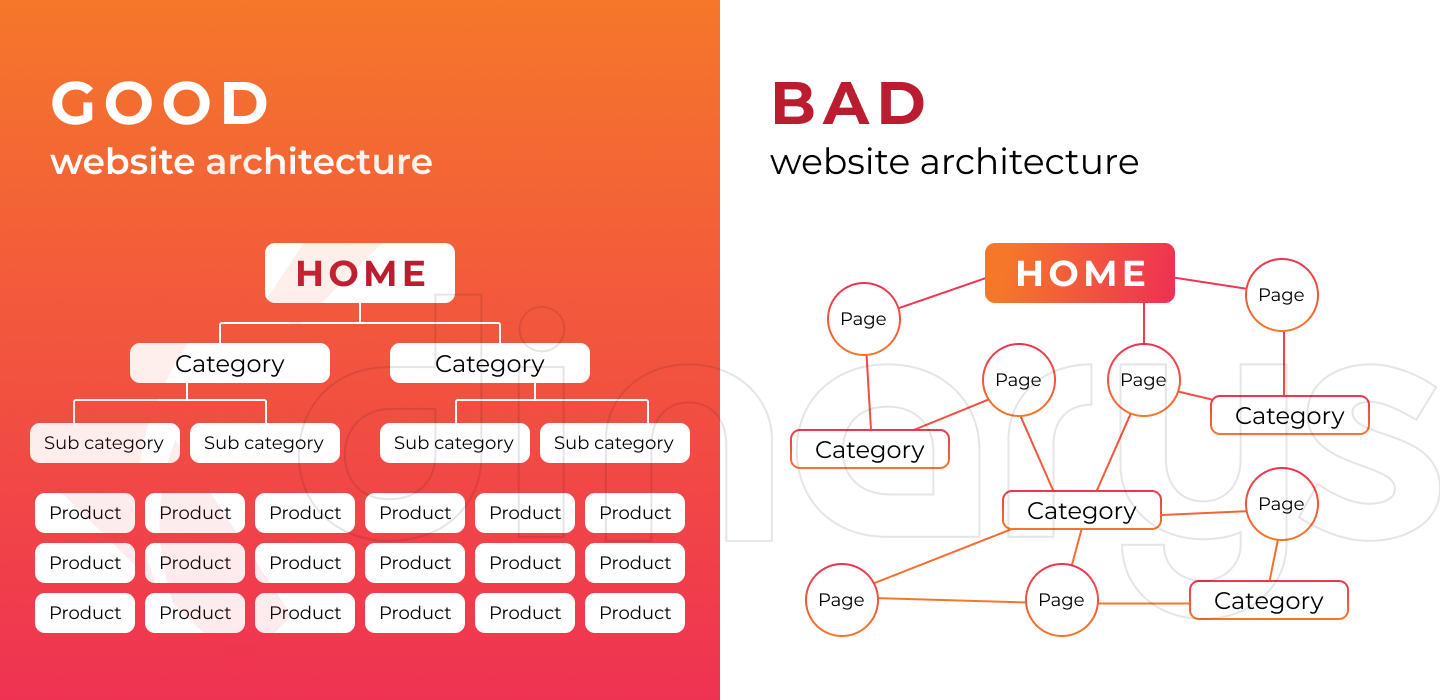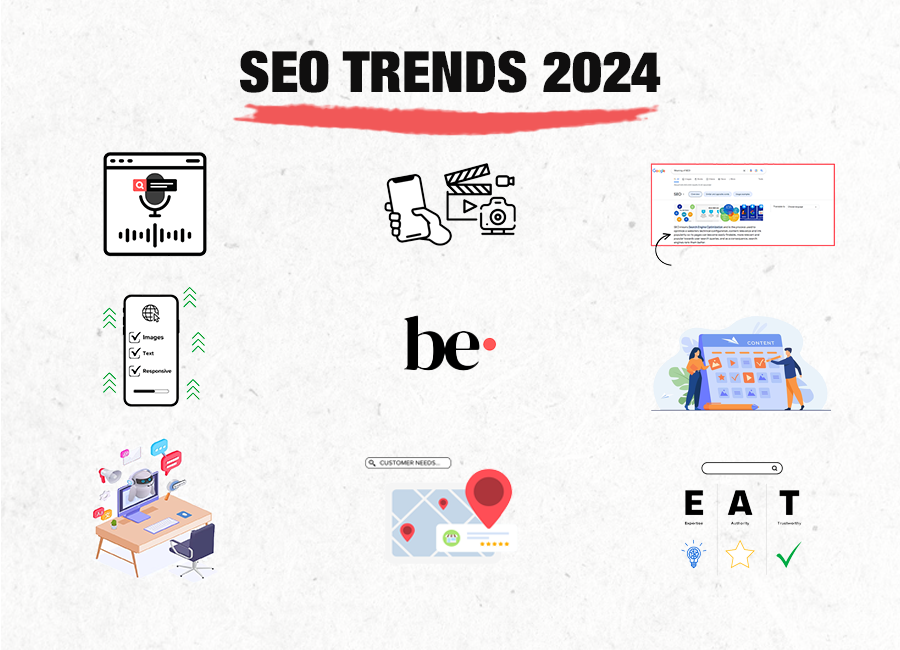SHARE

In today’s digital age, it’s no secret that having a robust online presence is essential for the success of any eCommerce business. With millions of websites competing for attention, standing out from the crowd can be challenging. This is where search engine optimisation (SEO) comes into play. By implementing effective SEO strategies, you can improve your website’s visibility in search engine results and drive more organic traffic to your online store. This article will explore the best practices for eCommerce SEO in 2024 and how to stay ahead of the curve.

(Source: https://understandingecommerce.com/four-ecommerce-seo-steps-rank-your-keywords/)
Understanding the Importance of SEO in eCommerce
Before diving into specific SEO strategies, it’s crucial to understand the pivotal role SEO plays in the growth of online businesses. In today’s highly competitive landscape, simply having a great product or service is not enough. You need to ensure that your offerings are discoverable by your target audience. This is where SEO comes into play. By optimising your website for search engines, you increase your chances of appearing on the first page of search results, driving more traffic and potential customers to your site.
The Role of SEO in Online Business Growth
The importance of SEO in driving online business growth cannot be overstated. When your website ranks higher in search engine results pages, it increases visibility and enhances credibility in the eyes of potential customers. A higher ranking signals to users that your website is trustworthy and authoritative, making them more likely to choose your products or services over your competitors. SEO helps businesses establish a solid online presence.
In today’s digital age, where consumers rely heavily on search engines to find information, having a well-optimised website is crucial. It allows you to reach a wider audience, expand your customer base, and ultimately increase your revenue. SEO is a cost-effective marketing strategy. Unlike traditional advertising methods, such as television or print ads, SEO allows you to target specific keywords and demographics, ensuring that your efforts are focused on reaching the right audience. This targeted approach saves you money and maximises your return on investment.
Key SEO Factors Influencing eCommerce Success
When it comes to eCommerce SEO, several key factors directly impact the success of your online business. One of the most critical factors is keyword research. By identifying the keywords and phrases your target audience uses to search for products or services, you can tailor your website content to meet their needs efficiently. It’s essential to understand the user intent behind these keywords. Are users looking for information, or are they ready to purchase? By aligning your content with the user’s intent, you can provide a seamless user experience and increase the likelihood of conversions.

Another essential factor is on-page optimisation. This includes optimising your website’s meta tags, title tags, headings, and image alt tags to ensure search engines understand the relevance of your content to users’ search queries. By implementing proper on-page optimisation techniques, you can improve your website’s visibility and increase its chances of ranking higher in search results. High-quality backlinks from authoritative websites play a vital role in SEO. The more reputable websites that link back to your site, the higher your website’s credibility is in the eyes of search engines. Building a strong backlink profile requires a strategic approach, such as reaching out to industry influencers or creating valuable content that naturally attracts backlinks.
Moreover, user experience is becoming an increasingly important factor in SEO. Search engines prioritise websites that provide a seamless and enjoyable user experience. This includes factors such as website speed, mobile-friendliness, and easy navigation. By optimising your website for a positive user experience, you not only improve your chances of ranking higher in search results but also enhance customer satisfaction and loyalty. SEO plays a crucial role in the growth and success of eCommerce businesses. By understanding the importance of SEO and implementing effective strategies, you can increase your website’s visibility and credibility and drive more traffic and conversions. Stay ahead of the competition by staying updated with the latest SEO trends and continuously optimising your online presence.
(Source: https://be-creativestudios.com/8-seo-trends-for-2024/)
Predicted SEO Trends For 2024
As technology continues to evolve rapidly, so does the landscape of SEO. Staying ahead of the curve and adapting to emerging trends is crucial to maintaining a competitive edge. Here are a few predicted SEO trends that eCommerce businesses should watch out for in 2024.
The Rise of Voice Search in eCommerce
In recent years, voice search has gained significant popularity with the rise of smart home devices and virtual assistants. Optimising your website for voice queries will become essential as more consumers embrace voice search. Consider incorporating long-tail keywords and natural language in your content to cater to voice search users.
Mobile-First Indexing and Its Impact on eCommerce
With increasing numbers of users accessing the internet via mobile devices, mobile-first indexing has become a priority for search engines. Ensuring your website offers a seamless browsing experience on mobile devices is crucial for SEO success. Responsive design, fast loading times, and mobile-friendly layouts are essential factors to consider.
Essential eCommerce SEO Strategies For 2024
Now that we have explored the importance of SEO and predicted trends let’s dive into some essential eCommerce SEO strategies you should implement in 2024.

(Source: https://shawngraham.me/blog/how-to-write-persausive-product-descriptions-for-ecommerce)
Optimising Product Descriptions for SEO
One of the most critical aspects of eCommerce SEO is creating compelling and keyword-optimised product descriptions. Take the time to craft unique, informative, and engaging product descriptions that resonate with your target audience. Incorporating relevant keywords naturally improves your chances of ranking higher in search results.

(Source: https://dinarys.com/blog/e-commerce-website-architecture)
The Importance of a Well-Structured Site Architecture
A well-structured site architecture is crucial for both user experience and SEO. Ensure that your website’s navigation is intuitive and user-friendly. This allows search engines to crawl and index your pages more effectively, improving your website’s visibility in search results.
Mastering Local SEO For eCommerce
For businesses catering to specific geographic locations, mastering local SEO is vital. Local SEO allows you to target customers in your area and increase foot traffic to your physical store, if applicable. Optimising your website for local search includes claiming and optimising your Google My Business page, collecting online reviews, and utilising location-based keywords.
The Significance of Local SEO in Online Retail
Local SEO is particularly relevant for online retail businesses with physical stores or outlets. It allows you to tap into the local market, ranking higher in local search results and driving more qualified traffic to your online and offline stores.
Strategies For Improving Local SEO
Improving local SEO involves:
- Optimising your website for location-based keywords.
- Creating location-specific landing pages.
- Ensuring your business information is accurate and consistent across online directories.
Overcoming Common eCommerce SEO Challenges
While implementing SEO strategies can significantly benefit your eCommerce business, it’s not without its challenges. Let’s look at some common eCommerce SEO challenges and how to overcome them.
Dealing with Duplicate Content Issues
Duplicate content can harm your website’s SEO efforts. Ensure that your website does not have duplicate product descriptions, meta tags, or other content. Use canonical tags to indicate the original content source and implement redirects where necessary.
Improving Site Speed For a Better User Experience
Site speed is a crucial ranking factor for search engines. Optimise your website’s loading times by compressing images, minifying CSS and JavaScript files, and utilising caching techniques. Improved site speed boosts SEO, enhances user experience, and reduces bounce rates. Implementing effective eCommerce SEO strategies is essential to stay ahead of the competition in 2024. By understanding the importance of SEO, staying up to date with the latest trends, and implementing best practices, you can drive more organic traffic to your online store, increase conversions, and achieve long-term online success.
Remember, SEO is an ongoing process that requires constant monitoring and adjustments. Stay proactive, adapt to changes, and optimise your website for better search engine rankings. The effort you put into eCommerce SEO today will pay off in the future, helping your online business thrive in the ever-evolving digital landscape of 2024.






